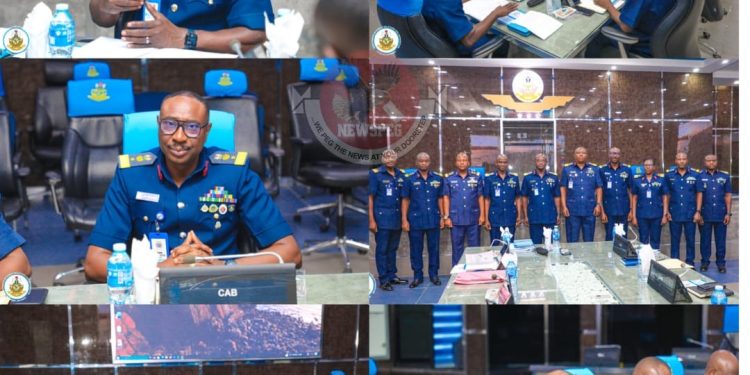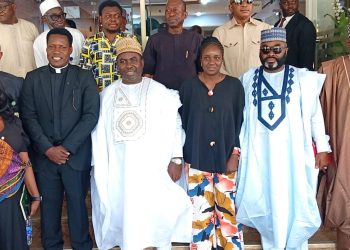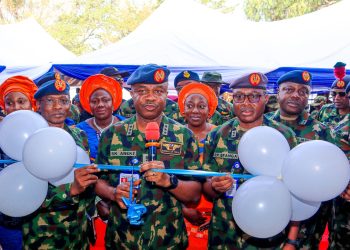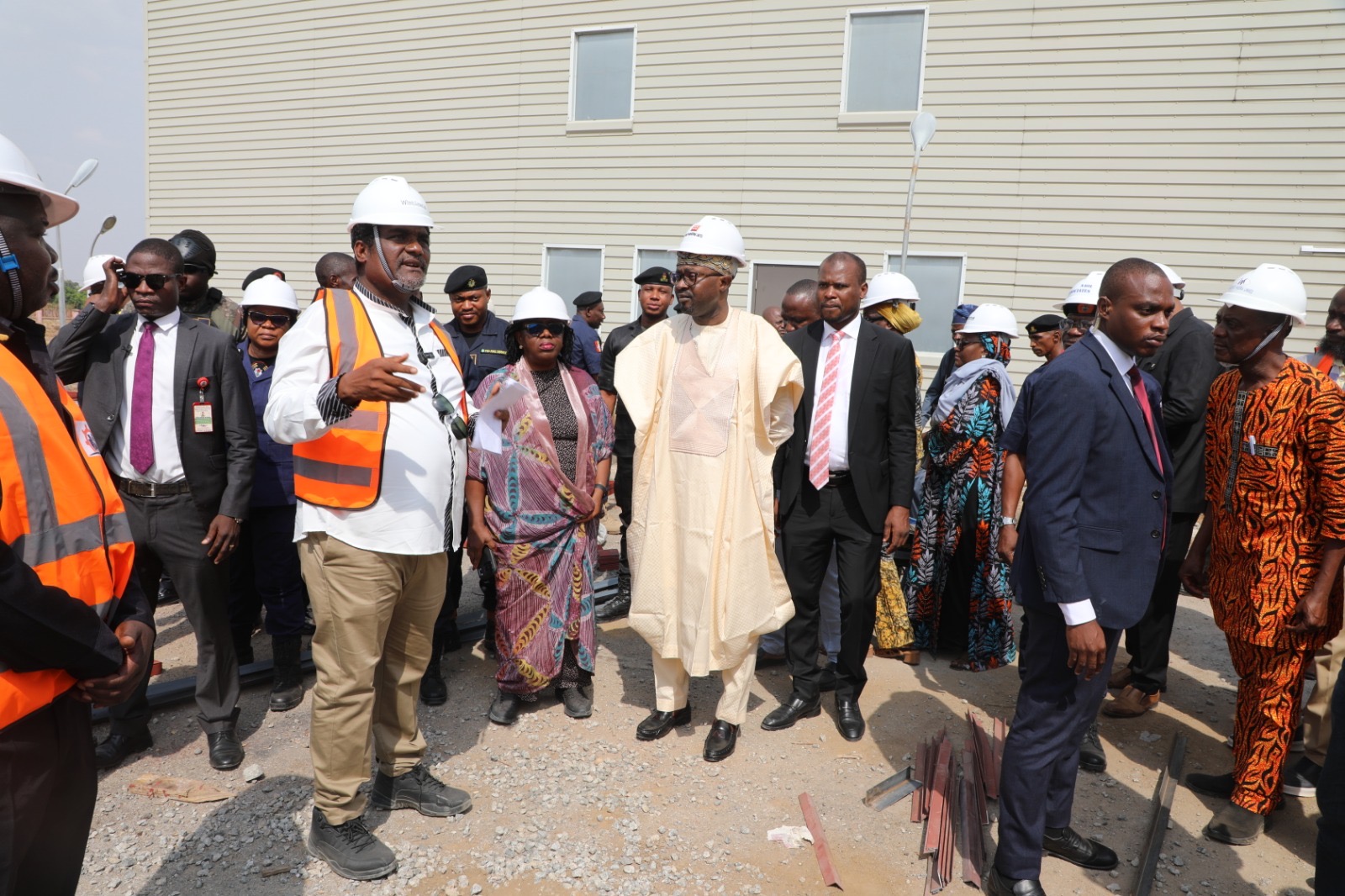By Nkechi Eze
In a decisive move to institutionalize accountability and protect civilians in conflict theatres, the Nigerian Air Force (NAF) has inaugurated a Civilian Harm Mitigation and Response (CHMR) Board as part of efforts to fully implement its Civilian Harm Mitigation Action Plan (CHMR-AP). The initiative, unveiled at an inaugural meeting held on July 8, 2025, underscores the NAF’s evolving commitment to international humanitarian standards, ethical combat practices, and the protection of non-combatants in the course of military operations.
Director of Public Relations and Information, NAF, Air Commodore Ehimen Ejodame, in a statement on the development, noted that the Board’s launch represents a strategic pivot in the NAF’s ongoing transformation efforts, prioritising precision, accountability, and humanity in the execution of air missions.
The Chief of the Air Staff (CAS), Air Marshal Hasan Bala Abubakar, who was represented at the ceremony by the Chief of Civil-Military Relations, Air Vice Marshal Ibikunle Daramola, reaffirmed the NAF’s unwavering resolve to safeguard civilian lives during air operations. He noted that the establishment of the CHMR Board reflects a broader cultural and doctrinal shift within the service to ensure air power is exercised responsibly.
“We will continue to adapt and refine our strategies to minimise harm and strengthen the legitimacy of our operations,” Air Marshal Abubakar stated, adding that embedding civilian protection into the NAF’s operational ethos was not only a professional obligation but a moral imperative.
According to the Air Chief, the CHMR Board has been specifically tasked with leading the execution of the CHMR-AP across all levels of the NAF’s organisational structure, including within joint military operations. He described the Board as the coordinating engine that will translate the NAF’s policy on civilian protection into actionable results across its theatres of engagement.
“Effective implementation requires prompt coordination across the entire NAF echelon,” he said. “This Board will ensure that our commitment is translated into measurable action.”
Among the Board’s key responsibilities is the collation and analysis of data relating to incidents of civilian harm. This includes assessments derived from NAF combat reports, intelligence sharing with international partners, inputs from non-governmental and civil society organisations, as well as open-source information. Supporting this process is the NAF Civilian Harm Assessment and Investigation Cell, which has been empowered to conduct in-depth assessments, identify operational patterns, draw actionable lessons, and track progress on mitigation efforts.
“This is a critical institutional step,” Air Marshal Abubakar declared. “We must ensure that our air operations do not compromise the safety of the very people we are sworn to protect. Every innocent life matters.”
The CAS noted that over the years, the Nigerian Air Force has evolved its strategic and operational models in line with the country’s complex and asymmetrical security threats. He added that the introduction of the CHMR Board is a further milestone in this evolution—an affirmation that air power must always balance effectiveness with ethical responsibility.
By institutionalising civilian harm mitigation, Air Marshal Abubakar said the NAF seeks not only to reduce incidents of unintended casualties but also to foster greater public trust, enhance operational legitimacy, and increase transparency in the conduct of military operations.
He concluded that the Board’s work would be pivotal in reinforcing NAF’s leadership role within the Armed Forces and its wider commitment to international best practices in the protection of civilian populations during armed conflict.
















